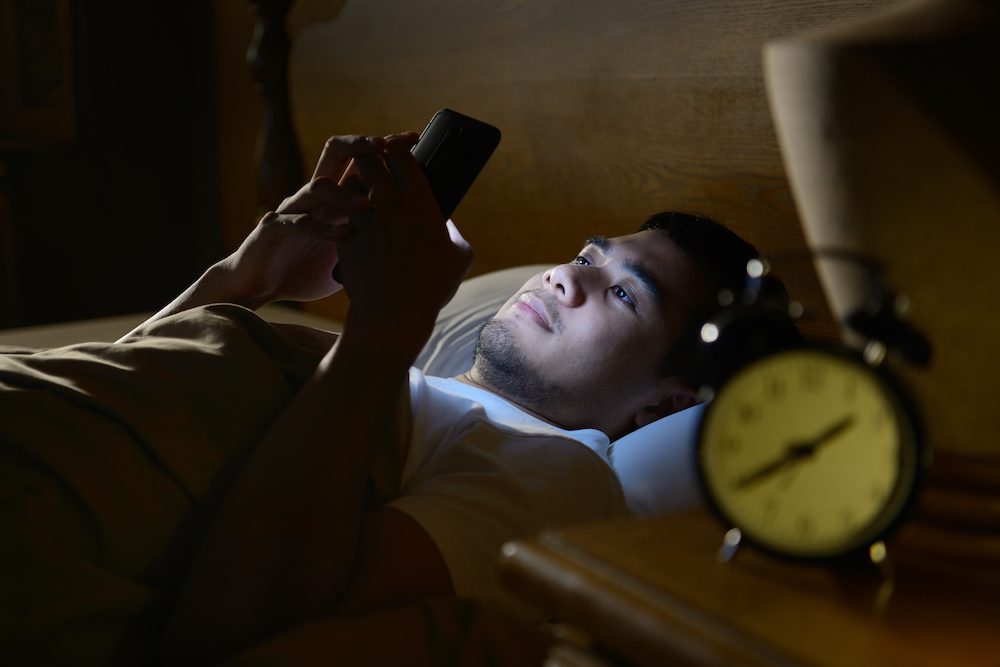If you struggle to get enough rest, you’re not alone. Up to half of Americans have trouble sleeping. While experts recommend that adults over the age of 18 get at least seven hours of sleep a night, many rarely get more than six.
The body needs consistent, high quality sleep to prevent disease, recover from everyday stressors, and help reduce inflammation. People who don’t get enough sleep are at higher risk for a variety of health conditions, including diabetes, high blood pressure, and heart disease. Quality sleep helps your immune system fight off colds and other viruses.
Sleep is also essential for the brain to function correctly. A lack of sleep can make it hard to focus, pay attention, and remember things. Tired people are more likely to make mistakes at work and have accidents. They may experience mood swings or symptoms of depression and anxiety.
Fortunately, there are a variety of ways to get better sleep and stay healthy. Known as sleep hygiene, these habits encourage high-quality, restorative sleep. We’ll look at a variety of best practices on how to sleep better.
Improve Your Sleep Schedule
Maintaining a consistent schedule can help you sleep better. That’s because the circadian rhythms that regulate sleep rely on external cues like light to tell us when we should be tired and when we should be alert.
Circadian rhythms are internal cycles that control physical functions like metabolism, body temperature, and sleep patterns. They follow signals from the environment to determine when it’s day and when it’s nighttime. Going to sleep at irregular times or napping too much can throw off your circadian rhythm and make it hard to fall asleep.
Fixing your sleep schedule can help to retrain disrupted circadian rhythms. This process may take some time, especially if you are used to maintaining a different schedule, or no schedule at all.
- Go to Bed at the Same Time Each Night: Set a bedtime and stick to it. Going to bed at the same time every night helps align your body’s natural sleep-wake cycle with your drive for sleep so you’re ready to fall asleep when you get in bed each night.
- Set Your Alarm for the Same Time Every Morning: Wake up at the same time each morning and expose yourself to natural light as soon as possible. Taking in the morning sunlight can help regulate your circadian rhythm and improve alertness.
- Skip the Nap, if Possible: Avoid napping, especially later in the day. If you must take a nap, keep it to 20 minutes or shorter. Longer naps can cause a groggy feeling known as sleep inertia.
Trouble Sleeping?
We can help. Tell us about your sleep to get a free Sleep Doctor score with recommendations for better sleep.
Shift Work Sleep Schedules
Shift workers may face unique challenges maintaining a consistent sleep schedule. Their sleep patterns frequently become disrupted because they’re often awake at night and have to sleep during the day when it’s light out. On average, shift workers get 30 to 60 fewer minutes of sleep than those who work during the day.
The good news is it’s still possible for those who work rotating or night shifts to manage the effects of an irregular sleep schedule.
- Make it Flexible: The best sleep schedule is one that’s easy to follow on days off as well as work days. Although getting seven to nine straight hours of sleep is ideal, consider splitting this block into two shorter periods when necessary.
- Control Light Exposure: Some evidence suggests that appropriately timed exposure to light or darkness might help shift workers stay alert at work and adapt more easily to schedule changes. Strategies involve using shades or curtains to block natural light during daytime sleep and working under strong bright lights during night shifts.
Enhance Your Sleep Environment
The amount of light and noise in your sleep environment can have a strong impact on how well and how long you sleep. Your bedroom should be a comfortable, quiet place that encourages rest and relaxation. There are a host of small changes that can make your room an ideal place for sleeping.
- Adjust the Lighting: Keep your room as dark as possible, and consider using blackout curtains if bright outdoor lights are keeping you up at night. If you’re able to do so, position your bed in a way that exposes you to early morning sunlight. This may help you feel more alert in the mornings and fall asleep faster at night.
- Reduce Noise: If your sleeping environment is too noisy, try wearing earplugs or using a white noise machine.
- Maintain a Comfortable Temperature: Make sure the bedroom is not too hot or too cold. Many people find that a cool environment of about 65 to 68 degrees Fahrenheit is the ideal temperature for promoting sleep.
- Remove Distractions: It can be tempting to stay up late scrolling through your phone, surfing the web, or watching TV. Instead, turn off your devices and, if possible, store them in another room. In addition to being distracting, many electronic devices emit sleep-disrupting blue light.
Create a Bedtime Routine
Some evidence suggests that a calming bedtime routine might lead to better sleep. A bedtime routine is a great way to start unwinding an hour or two before you go to bed.
Developing a personalized routine can also help you address any underlying reasons you might have trouble sleeping. For example, if worries are keeping you up at night, consider incorporating stress-relieving rituals into your routine. These might include:
- Meditation or yoga
- Listening to soothing music
- Reading
Some people find that taking a hot bath before bed helps them sleep better. Getting out of a hot bath causes a drop in body temperature that can lead to feeling sleepy.
Avoid watching TV and using electronics for at least 30 minutes before you go to bed. While it might seem ideal to fall asleep watching a movie or TV show, these devices let off blue light that mimics daylight and can disrupt sleep patterns. If you need to fall asleep with the TV on, use a sleep timer if one is included with your TV.
Shop the Best Mattresses of 2024Follow Daytime Sleep Hygiene Tips
There is more to sleep hygiene than bedtime routines and sleep schedules. Many of your actions during the day determine whether or not you’ll sleep well at night.
- Avoid Alcohol too Close to Bedtime: Drinking alcohol can help you fall asleep faster. However, it will likely cause you to sleep lightly and wake up in the second half of the night. Alcohol is also associated with low-quality sleep overall.
- Time Your Caffeine Intake Wisely: Caffeine is a stimulant, meaning it causes alertness, and it sticks around for a while. It can take caffeine up to eight hours to leave the body. Limit your caffeine intake to the first half of the day, or avoid it altogether if you’re sensitive to it.
- Eat lightly before bed: Try not to eat heavy meals at least two hours before you go to bed because any associated indigestion can make it hard to sleep.
- Get Regular Exercise, but Not Too Late in the Day: Regular exercise has been shown to help people sleep longer, fall asleep faster, and get better quality rest. However, it’s important to time your workouts correctly. Avoid physical activity that raises the heart rate for at least two hours before bedtime.
- Quit Smoking: People who use nicotine tend to have lower quality sleep and wake up more often in the night than those who do not.
- Manage Stress: Seek out healthy ways to deal with stress during the day. Talk to a health care professional if you feel overwhelmed or if you think stress is keeping you up at night.
How to Fall Asleep Fast When You Wake Up at Night
If you often find yourself up in the middle of the night and unable to get back to sleep, it’s important to address the root cause of your nighttime awakenings.
There are many reasons why people wake up frequently in the night, including sleep disorders like restless legs syndrome, alcohol use, and certain medications. Insomnia can make it difficult to stay asleep as well as fall asleep.
If you wake up during the night, first of all, don’t panic. Worrying about sleep can sometimes make it harder to fall back asleep. Try to relax, avoid staring at the clock, and save the blue light-emitting electronics for the morning. If you’re not able to sleep within 20 minutes of waking up, get up and do something relaxing in another room until you feel drowsy.
Some people use relaxation techniques to fall asleep faster. These techniques include:
- Progressive muscle relaxation
- Body scan meditation
- Deep breathing
- Guided imagery
When to Seek Help for Sleep Issues
If you have improved your sleep hygiene but still struggle to fall or stay asleep, it might be time to contact your doctor. They can suggest some ways to help you sleep better, or they may refer you to a sleep specialist who can identify root causes or sleep disorders that might need treatment.
It’s also important to let your health care provider know if you believe a medication you take is causing sleep disturbances. They may be able to provide an alternative, an additional medication to help with side effects or advice on adjusting to the medication.
You should also let your doctor know immediately if you are experiencing symptoms that could be a sign of a serious condition or sleep disorder. These include:
- Depression or low mood
- Pain that interferes with your sleep
- Loud, frequent snoring
- Trouble breathing at night
- Waking up choking or gasping
- Daytime fatigue or sleepiness
References
Ask the Sleep Doctor
Have questions about sleep? Submit them here! We use your questions to help us decide topics for future articles, videos, and newsletters. We try to answer as many questions as possible. You can also send us an email. Please note, we cannot provide specific medical advice, and always recommend you contact your doctor for any medical matters.









